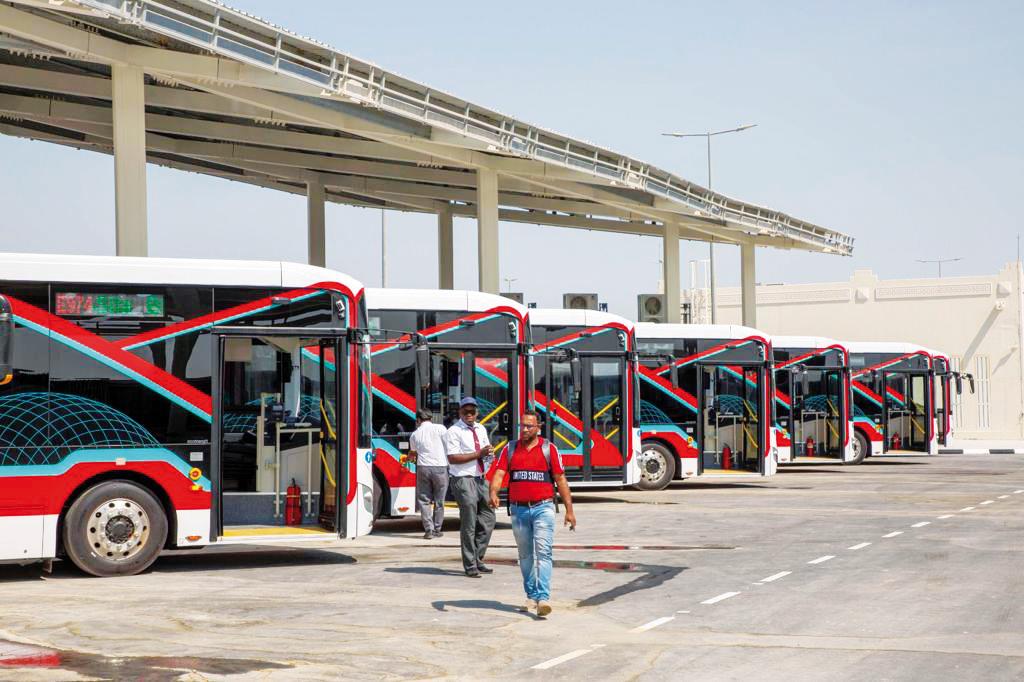(MENAFN- The Peninsula) sanaullah ataullah |
The Peninsula
Doha, Qatar: To ensure sustainability and address climate change, Qatar's second clean energy plan is expected to be launched in September this year.
“During FIFA World Cup Qatar 2022, we employed 25 percent of public transport in Qatar which was eco-friendly,” said Minister of Transport H E Jassim bin Saif Al Sulaiti.
Speaking to Qatar TV recently, the Minister of Transport said:“Following Qatar National Vision (QNV) 2030, we will launch the second part of Qatar's clean energy plan in September.”
He said that the number of eco-friendly public transport vehicles is expected to go up significantly from 2022 to the end of 2023.
“We are expected to achieve our Qatar National Vision 2030 goals before the target year,” said the Minister.
Speaking about the expansion plans of Qatar Airways, he said that it is one of the most important airlines in the Middle East.
“Qatar Airways is distinguished by operating to approximately 153 destinations, before the end of this year it will reach 170 destinations,” said the Minister.
The mega sporting event has built a legacy for transportation system of Qatar. The public transportation system of Qatar will be converted to fully electric thanks to the FIFA World Cup Qatar 2022 legacy.
Now Qatar has an advanced sustainable transportation system with eco-friendly buses. Apart from the public transit buses, Mowasalat (Karwa) deployed about 2,500 eco-friendly buses for schools, ferrying over 60,000 students daily.
Lusail Bus Depot set a Guinness world record as the largest electric bus depot with a capacity of 478 buses. Lusail Bus Depot relies on solar energy for charging as it includes some 11,000 PV solar panels to generate 4 megawatts of power daily to feed its buildings, and this is in line with Qatar's National Environment and Climate Change Strategy (QNE) goals, and helps achieve the leadership's vision and Qatar National Vision 2030 goals.
The depot, which is part of Ministry of Transport's Public Bus Infrastructure Program, consists of eight bus stations and four depots supported with more than 650 electric charging units for e-bus operations.
Al Kharsaah Solar PV Power Plant (KSPP) is a qualitative leap in diversifying sources of producing electricity in the country.
KSPP is the first solar power plant in the country which will be followed by a power plant in Mesaieed with the capacity of 410 megawatts and a power plant in Ras Laffan with the capacity of 470 megawatts.
Building KSPP comes as part of implementing QatarEnergy's updated Sustainability Strategy, which re-emphasises its commitment, as a major energy producer, to responsible production of clean and affordable energy to facilitate the energy transition.
In addition to increasing solar capacity to over 5 GW, the strategy targets reducing greenhouse gas emissions, and deploying carbon capture and storage technology to capture over 11 million tonnes per annum of CO2 in Qatar by 2035.
The strategy also aims to further reduce the carbon intensity of LNG facilities, bolstering Qatar's commitment to responsibly supply cleaner LNG at scale in support of the energy transition.



















Comments
No comment